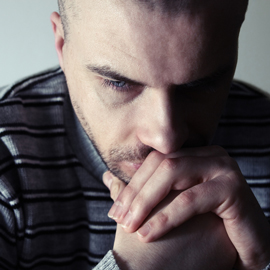 The rate of depression among people who undergo weight loss surgery is higher than that of the normal population. This is not because of the implications of weight loss surgery, but instead a lingering effect of the emotional hardship so often caused by obesity. In fact, the rate of depression among those who get bariatric surgery often falls following their procedure. When compared to other populations, the bottom line is that depression is a common experience for many Lap Band patients.
The rate of depression among people who undergo weight loss surgery is higher than that of the normal population. This is not because of the implications of weight loss surgery, but instead a lingering effect of the emotional hardship so often caused by obesity. In fact, the rate of depression among those who get bariatric surgery often falls following their procedure. When compared to other populations, the bottom line is that depression is a common experience for many Lap Band patients.
Ideally, you won’t be personally impacted by depression, but if you or someone you love has struggled with obesity, then there is a pretty big chance that either you or someone you know will suffer from it. Your bariatric surgeon in Albany or Macon will give you the tools and education needed to make healthy choices as you lose weight, but you are going to need to find additional resources to improve your emotional health during this time, as well.
Treating Depression as you Lose Weight in Albany and Macon
Depression isn’t something that should wait until after weight loss surgery to be addressed. This is one aspect of your health that should be managed from the onset of your health and wellness program. Making the objective early on to manage depression and address the cause of your concerns is one of the most meaningful steps you can take to improve your psychological and physical health.
A recent study at the University of Nuremberg in Germany found that those who struggled with depression but did not address their emotional concerns lost less weight after bariatric surgery than those with optimal emotional health. This is more reason it is so important to address your emotional needs as you are planning on making physical changes to your health.
Being emotionally ready for weight loss will enhance your program and can make the entire Lap Band experience much more enjoyable.
Here are a few steps you can take to address depression in your life as you lose weight:
- Find support. The support of your friends and loved ones is crucial during the entire weight loss process, as they can motivate you to move forward and make healthy choices. You will also need emotional support from those you care about as you address your depression. Your friends and family members are likely unaware of what you are experiencing internally. Be open with them and let them know what they can do to help.
- Be social. Even when you aren’t feeling up to it, being social can have a huge impact on your emotional health. Getting out with friends forces you to push negative thoughts to the back of your head and develop stronger relationships. Depression causes many people to turn inward and seclude themselves. Fight that temptation and make some plans with a friend you haven’t seen in a while.
If you don’t think your friends are the right support network for you, then try finding a support group in Macon, Albany or Columbus. Support groups are available for those who’ve undergone bariatric surgery. While there, you might be surprised how many people you meet who are facing similar situations.

Leave a Reply